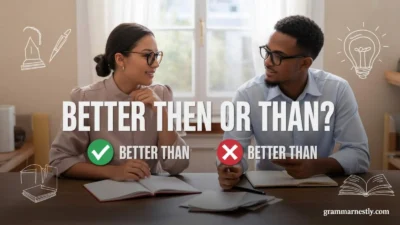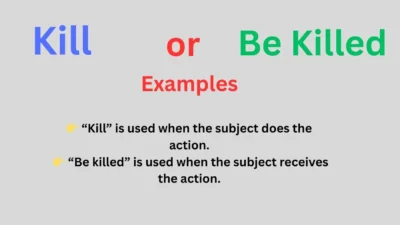I see you’re wondering whether it’s “all right” or “alright.” 😅
You’re not alone — this mix-up shows up everywhere: in texts, emails, and even song lyrics. Both look right, but only one is grammatically correct.
Still, the shorter version is sneaking into everyday writing.
In this quick grammar guide, I’ll break down the difference between all right vs alright, explain when to use each, and help you write with confidence every time. ✍️
⚡ “All Right or Alright” – Quick Answer
✅ “All right” is the correct and traditional spelling.
❌ “Alright” is considered informal or nonstandard, though it appears often in modern writing.
Examples:
- ✅ Everything will be all right.
- ❌ Everything will be alright. (Casual, but not formally correct.)
If you’re writing for school, work, or publication — always go with “all right.”
📜 The Origin of “All Right”
The phrase “all right” first appeared in the early 18th century, combining “all” (meaning whole) and “right” (meaning correct or satisfactory).
Together, it literally meant “everything is correct.”
The spelling “alright” emerged later in the 19th century, modeled after words like already and altogether.
But while those compounds became accepted, “alright” never officially made it into standard grammar.
In dictionaries like Oxford and Merriam-Webster, “alright” is labeled as informal, while “all right” remains the preferred form in both academic and professional writing.
🇬🇧 British English vs 🇺🇸 American English Spelling
Here’s the interesting part — both British and American English prefer “all right.”
However, “alright” is slowly gaining casual acceptance, especially in creative writing and social media.
| Example | British English | American English |
|---|---|---|
| Formal writing | All right ✅ | All right ✅ |
| Informal / casual use | Alright (informal) | Alright (informal) |
| Accepted in dictionaries | Yes (all right) | Yes (all right) |
| Meaning | Correct, fine | Correct, fine |
So while both dialects understand “alright,” only “all right” is grammatically approved.
🌍 Which Spelling Should You Use?
If you’re writing a formal email, academic essay, article, or report, use “all right.”
It’s the version that looks polished, professional, and correct worldwide. 🌎
If you’re posting on social media, texting friends, or writing fiction dialogue, “alright” can feel more relaxed and conversational.
Simple rule:
✍️ Use all right when you want to look right — use alright when tone matters more than rules.
🚫 Common Mistakes with “All Right or Alright”
| Incorrect | Correct | Explanation |
|---|---|---|
| I hope you’re alright with this decision. | I hope you’re all right with this decision. | Use “all right” in formal tone. |
| Everything’s alright now. | Everything’s all right now. | “Alright” is informal. |
| The report looks alright to me. | The report looks all right to me. | “All right” = standard English. |
💡 Memory tip:
“All right” means everything right — so you need both words to make it all right! ✅
💬 “All Right” in Everyday Examples
Text messages:
“You good?” — “Yeah, I’m all right 👍.”
Emails:
“I’ve reviewed the proposal, and everything looks all right.”
Social media:
“Alright 2026, let’s make it a great year! 🚀”
News writing:
“Officials confirmed that all passengers were all right after the incident.”
You’ll notice “alright” adds a relaxed, modern tone — while “all right” feels grammatically cleaner.
📊 “All Right or Alright” – Google Trends & Usage Data
Google data shows that “all right” remains dominant in searches and publications, but “alright” is rising in casual use.
| Country | “All Right” Popularity | “Alright” Popularity |
|---|---|---|
| United States | 🔵 85% | ⚪ 15% |
| United Kingdom | 🔵 80% | ⚪ 20% |
| India | 🔵 78% | ⚪ 22% |
| Australia | 🔵 82% | ⚪ 18% |
Writers of songs, blogs, and social media often prefer “alright” for simplicity, while editors and teachers still mark it as incorrect in formal writing.
🧩 “All Right” vs “Alright” – Quick Comparison
| Feature | All Right | Alright |
|---|---|---|
| Correctness | ✅ Standard | ⚠️ Informal |
| Dictionary status | Accepted | Nonstandard |
| Use in formal writing | Yes | No |
| Common in speech | Yes | Yes |
| Example | “Everything will be all right.” | “Alright, let’s go!” |
Both versions sound fine, but only one is officially right.
FAQs
Q1: Is “alright” wrong?
➡️ It’s not totally wrong, but it’s not formally accepted in standard English.
Q2: Is “alright” okay in emails?
➡️ Only in casual messages. Use “all right” for anything professional.
Q3: Why do people use “alright”?
➡️ Because it looks like similar compound words (already, although).
Q4: Can I use “alright” in fiction or dialogue?
➡️ Yes, it can make speech sound more natural.
Q5: Is “all right” older than “alright”?
➡️ Yes — it’s been used for centuries.
Q6: Which one do teachers prefer?
➡️ Always “all right.”
Q7: Is “alright” becoming accepted?
➡️ Slowly, in informal writing, but not yet in grammar guides or formal publications.
🧠 Conclusion
In short, “all right” is correct — “alright” is not (at least not formally). 🧠
If you want your writing to look polished and professional, always stick with “all right.”
Use “alright” only when you’re going for a casual, friendly, or conversational tone — like texting, lyrics, or creative writing.
So remember this simple rule: when in doubt, two words make it all right! ✅

I’m Emma Collins, a grammar expert and author at Grammarnestly.com. I love helping readers master English with simple, practical grammar guides.
When I’m not writing, I enjoy reading, coffee, and exploring the beauty of language.



